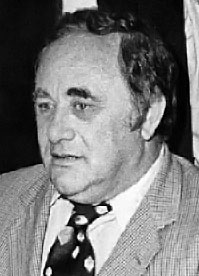Dennis Monokroussos writes:
 In
the last month we've picked on poor Efim Geller (1925-1998) twice, showing his
losses to Max Euwe and Paul Keres. As he is one of the legends of the game (as
evidenced by his being one of the few non-world champions singled out for a
mini-chapter in Kasparov's My Great Predecessors series), we'll use
this week's show to present him in a better light.
In
the last month we've picked on poor Efim Geller (1925-1998) twice, showing his
losses to Max Euwe and Paul Keres. As he is one of the legends of the game (as
evidenced by his being one of the few non-world champions singled out for a
mini-chapter in Kasparov's My Great Predecessors series), we'll use
this week's show to present him in a better light.
By 1979, his career as an elite GM was drawing to a close. The Ukrainian had
played in six candidates events from 1953 to 1971 and narrowly missed making
a seventh in 1974, but didn't succeed in making the 1977 or qualifying for the
1980 knockout matches. He had won the USSR championship in 1955, but now, as
a 54 year old, his best days seemed behind him. And yet, in the 1979 Soviet
Championship in Minsk, the good old days returned. After a series of seven draws,
he won in rounds 8, 10, 11, 12, 14 and 15 and won the tournament with an undefeated
11.5-5.5 score, a point ahead of Artur Yusupov and a further half point ahead
of Yuri Balashov and (a very young) Garry Kasparov.
The game we'll look at this week is his last win in the tournament, against
Alexander Beliavsky. The game, a Queen's Gambit Declined in which Geller had
Black, demonstrated his excellence both as a chess player and as an analyst.
As great a player as Geller was, he was at least as good as a theoretician.
According to Botvinnik, the King's Indian wasn't really understood until Geller,
and he made big contributions to all the major openings: the Sicilian, the Ruy
Lopez, the Slav, the Queen's Gambit and so on. In the game with Beliavsky, Geller
shows a very deep understanding of what seemed an innocuous position, and from
there he outplays his opponent using ideas we ourselves can apply in positions
with an isolated queen's pawn.
Rather than continuing to heap praise about Geller and his play, I invite you
to come and see for yourself. The show is free for registered Playchess.com
members, and begins tonight, Wednesday night, at 9 p.m. Eastern Time (3 a.m.
CET). It's easy to tune in: just log on to the Playchess server, go to the Broadcast
Room, select the Games tab and double-click on Beliavsky-Geller. That's all
you need to do, and then you're ready to go.
Dennis Monokroussos'
Radio ChessBase
lectures begin on Wednesdays at 9 p.m. EST, which translates to 02:00h
GMT, 03:00 Paris/Berlin, 13:00h Sydney (on Thursday). Other time zones
can be found at the bottom of this page. You can use Fritz or any Fritz-compatible
program (Shredder, Junior, Tiger, Hiarcs) to follow the lectures, or download
a free trial client. |
You can find the exact times for different locations in the world at World
Time and Date. Exact times for most larger cities are here.
And you can watch older lectures by Dennis Monokroussos offline in
the Chess Media System room of Playchess:
Enter the above archive room and click on "Games" to see the lectures.
The lectures, which can go for an hour or more, will cost you between one and
two ducats.
That is the equivalent of 10-20 Euro cents (14-28 US cents).

Monokroussos in Mexico: World Championship 2007
|
Dennis Monokroussos is 41, lives in South Bend, IN, where
he teaches chess and occasionally works as an adjunct professor of philosophy
at the University of Notre Dame and Indiana University-South Bend.
At one time he was one of the strongest juniors in the U.S. and has reached
a peak rating of 2434 USCF, but several long breaks from tournament play have
made him rusty. He is now resuming tournament chess in earnest, hoping to reach
new heights.
Dennis has been working as a chess teacher for ten years now, giving lessons
to adults and kids both in person and on the internet, worked for a number of
years for New York’s Chess In The Schools program, where he was one of
the coaches of the 1997-8 US K-8 championship team from the Bronx, and was very
active in working with many of CITS’s most talented juniors.
When Dennis Monokroussos presents a game, there are usually two main areas
of focus: the opening-to-middlegame transition and the key moments of the middlegame
(or endgame, when applicable). With respect to the latter, he attempts to present
some serious analysis culled from his best sources (both text and database),
which he has checked with his own efforts and then double-checked with his chess
software.


















 In
the last month we've picked on poor Efim Geller (1925-1998) twice, showing his
losses to Max Euwe and Paul Keres. As he is one of the legends of the game (as
evidenced by his being one of the few non-world champions singled out for a
mini-chapter in Kasparov's My Great Predecessors series), we'll use
this week's show to present him in a better light.
In
the last month we've picked on poor Efim Geller (1925-1998) twice, showing his
losses to Max Euwe and Paul Keres. As he is one of the legends of the game (as
evidenced by his being one of the few non-world champions singled out for a
mini-chapter in Kasparov's My Great Predecessors series), we'll use
this week's show to present him in a better light.






